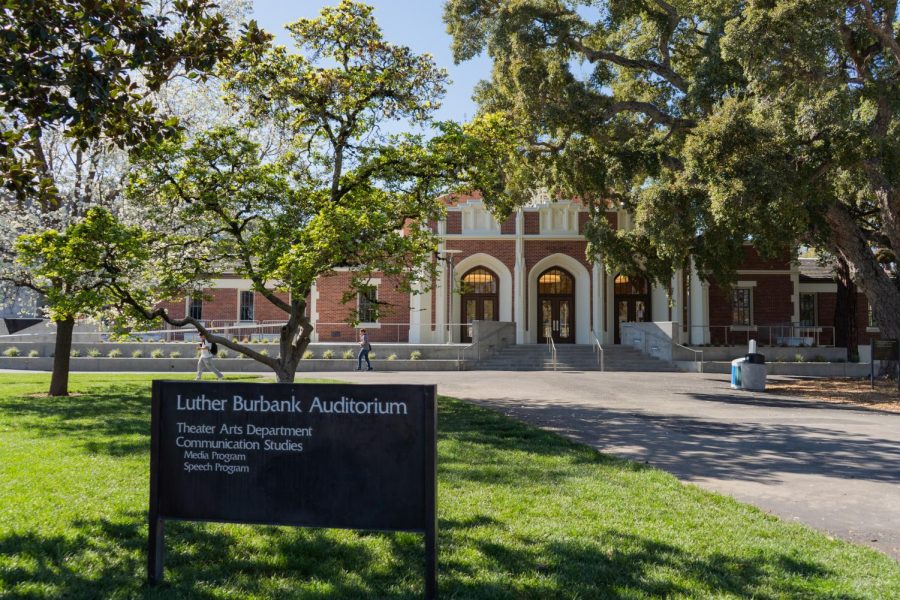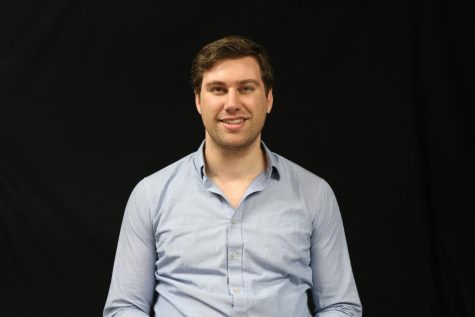In an interview today, SRJC president Dr. Frank Chong discussed the college’s decision to temporarily close the campus and shut down all school-affiliated activities through the end of this weekend and into spring break, potentially ending March 22.
Prior to today’s announcement, Chong worked with the administration to keep SRJC open, despite the closure of other Bay Area colleges, but he also discussed his willingness to make decisions based on official health and safety recommendations. In an interview with the Oak Leaf Thursday afternoon, Chong said the decision to close the campus and shut down events was not mandatory from any governmental health agency, but college officials decided it was best for SRJC.
“We will be assessing the situation and engaging in planning over the spring break and will inform the community of possible future closures,” Chong wrote in a campus-wide email.
According to Chong, the suspension of classes and activities includes: on campus events such as sporting events, theatre and music performances, and culinary restaurant services. Chong and the administration are currently working with Academic Senate and All Faculty Association leadership to explore possibilities for students to complete classes.
SRJC police will have a police and security presence on the campus because the campus will be legally closed. The campus will remain closed through March 23 because of spring break, despite the official suspension ending March 15.
Chong has been working with college officials to plan for Zoom online classes, Canvas homework and other online options in the event that the college does not reopen campuses after spring break. The college also has been working with its IT department to determine if servers would be able to work with the increased online presence.
Chong explained to the SRJC community that the Sonoma County Department of Health and Services (SCDH) and California Department of Public Health had recommended limiting public gatherings, including universities, which prompted the suspension of classes. This was not an easy decision for Chong, because there has been no community spread in Sonoma County, and the public health risk is still low.
“The decision was not made lightly,” Chong said. “It is our hope that by taking this precautionary step, we can help reduce the risk of spread in our local community.”
For those who plan to travel during spring break, Chong recommends that they take precautions using the Center for Disease Control and Prevention (CDC) travel guidelines to limit the risk of contracting the virus.
The SRJC Coronavirus Taskforce, an administrator and staff coalition formed to focus on the outbreak, will remain active throughout the shutdown and through the break. Members will continue to provide updates as this outbreak unfolds.
In the Bay Area, Berkeley, Stanford, San Jose State University and Sonoma State University are among several colleges that have shut down or gone online only to help prevent the virus’ spread. In largely populated cities all across the U.S., the virus is responsible for hundreds of school closures.
In China, many coronavirus patients recover and the number of new cases appears to have plateaued, while around the world, the numbers continue to rise. Globally, the virus has infected more than 130,000 people with nearly 5,000 confirmed, according to the CDC.
President Trump announced Wednesday new travel restrictions to Italy and most of Europe in an effort to limit travel to hotspot countries that have uncontained community spread. According to mapping by Johns Hopkins Centers for Systems Science and Engineering, hotspots include: China, South Korea, Iran, France, Germany and Norway. The CDC advises avoiding travel to those countries if at all possible.
The entertainment industry has taken a huge hit across the U.S. as concerts, performances and sporting events are being canceled by the dozens. The NBA indefinitely suspended the 2019–2020 season after a Utah Jazz team member test positive for the novel coronavirus.
Health officials have continued to stress that the most vulnerable population is the elderly over 60 years old with heart conditions, diabetes or respiratory illnesses. The risk to vulnerable populations has been a major reason governments and organizations have tried desperately to contain and reduce the number of cases.
The CDC still estimates it will be a year or more until a vaccine is available. Until then, hand washing will remain the major way to combat the transmission of the virus.
Chong and other SRJC administrators plan to work every day to stay on top of the virus’ developments and to protect the SRJC community.
“District offices will remain open and we intend to use this time to work alongside our faculty and staff to plan on how best to continue to serve our students during this unprecedented situation,” Chong said.
For more resources visit Student Health Services coronavirus webpage, socoemergency.org, 22sonoma.org, call the 24-hour Sonoma County information hotline at 800-325-9604, or text COVID19 to 211211.





